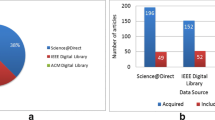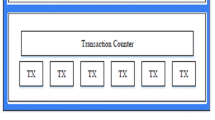Abstract
Scalability has long been a major challenge of cryptocurrency systems, which is mainly caused by the delay in reaching consensus when processing transactions on-chain. As an effective mitigation approach, the payment channel networks (PCNs) enable private channels among blockchain nodes to process transactions off-chain, relieving long-time waiting for the online transaction confirmation. The state-of-the-art studies of PCN focus on improving the efficiency and availability via optimizing routing, scheduling, and initial deposits, as well as preventing the system from security and privacy attacks. However, the behavioral decision dynamics of blockchain nodes under potential malicious attacks is largely neglected. To fill this gap, we employ the game theory to study the characteristics of channel interactions from both the micro and macro perspectives under the situation of channel depletion attacks. Our study is progressive, as we conduct the game-theoretic analysis of node behavioral characteristics from individuals to the whole population of PCN. Our analysis is complementary, since we utilize not only the classic game theory with the complete rationality assumption, but also the evolutionary game theory considering the limited rationality of players to portray the evolution of PCN. The results of numerous simulation experiments verify the effectiveness of our analysis.
Similar content being viewed by others
References
Li P, Miyazaki T, Zhou W. Secure balance planning of off-blockchain payment channel networks. In Proc. the IEEE Conference on Computer Communications, Jul. 2020, pp.1728-1737. DOI: https://doi.org/10.1109/INFO-COM41043.2020.9155375.
Lin S, Zhang J, Wu W. FSTR: Funds skewness aware transaction routing for payment channel networks. In Proc. the 50th Annual IEEE/IFIP International Conference on Dependable Systems and Networks, Jun. 29-Jul. 2, 2020, pp.464-475. DOI: 10.1109/DSN48063.2020.00060.
Bagaria V K, Neu J, Tse D. Boomerang: Redundancy improves latency and throughput in payment-channel networks. In Proc. the 24th International Conference on Financial Cryptography and Data Security, Feb. 2020, pp.304-324. DOI: https://doi.org/10.1007/978-3-030-51280-4_17.
Khalil R, Gervais A. Revive: Rebalancing off-blockchain payment networks. In Proc. the 2017 ACM SIGSAC Conference on Computer and Communications Security, Oct. 30-Nov. 3, 2017, pp.439-453. DOI: 10.1145/3133956.3134033.
Rohrer E, Malliaris J, Tschorsch F. Discharged payment channels: Quantifying the lightning network's resilience to topology-based attacks. In Proc. the 2019 IEEE European Symposium on Security and Privacy Workshops, Aug. 2019, pp.347-356. DOI: 10.1109/EuroSPW.2019.00045.
Kappos G, Yousaf H, Piotrowska A M, Kanjalkar S, Delgado-Segura S, Miller A, Meiklejohn S. An empirical analysis of privacy in the lightning network. In Proc. the 25th International Conference on Financial Cryptography and Data Security, Mar. 2021, pp.167-186. DOI: https://doi.org/10.1007/978-3-662-64322-8_8.
Tang W, Wang W, Fanti G C, Oh S. Privacy-utility trade-offs in routing cryptocurrency over payment channel networks. Proc. ACM Meas. Anal. Comput. Syst., 2020, 4(2): Article No. 29. DOI: 10.1145/3392147.
Banerjee P, Mazumdar S, Ruj S. Griefing-penalty: Countermeasure for griefing attack in bitcoin-compatible PCNs. arXiv:2005.09327, 2020. https://arxiv.org/abs/2005.09327, May 2022.
Harris J, Zohar A. Flood & loot: A systemic attack on the lightning network. In Proc. the 2nd ACM Conference on Advances in Financial Technologies, Oct. 2020, pp.202-213. DOI: 10.1145/3419614.3423248.
Avarikioti Z, Heimbach L, Wang Y, Wattenhofer R. Ride the lightning: The game theory of payment channels. In Proc. the 24th International Conference on Financial Cryptography and Data Security, Feb. 2020, pp.264-283. DOI: https://doi.org/10.1007/978-3-030-51280-4_15.
Lange K, Rohrer E, Tschorsch F. On the impact of attachment strategies for payment channel networks. In Proc. the IEEE International Conference on Blockchain and Cryptocurrency, May 2021. DOI: https://doi.org/10.1109/ICBC51069.2021.9461104.
Pickhardt R, Nowostawski M. Imbalance measure and proactive channel rebalancing algorithm for the lightning network. In Proc. the IEEE International Conference on Blockchain and Cryptocurrency, May 2020. DOI: https://doi.org/10.1109/ICBC48266.2020.9169456.
Lu Z, Han R, Yu J. General congestion attack on HTLC-based payment channel networks. In Proc. the 3rd International Conference on Blockchain Economics, Security and Protocols, Nov. 2021, Article No. 2. DOI: https://doi.org/10.4230/OA-SIcs.Tokenomics.2021.2.
Qin Y, Hu Q, Yu D, Cheng X. Malice-aware transaction forwarding in payment channel networks. In Proc. the 18th IEEE International Conference on Mobile Ad Hoc and Smart Systems, Oct. 2021, pp.297-305. DOI: 10.1109/MASS52906.2021.00046.
Press W H, Dyson F J. Iterated prisoner's dilemma contains strategies that dominate any evolutionary opponent. Proceedings of the National Academy of Sciences of the United States of America, 2012, 109(26): 10409-10413. DOI: https://doi.org/10.1073/pnas.1206569109.
Govaert A, Cao M. Zero-determinant strategies infinitely repeated n-player games. arXiv:1910.07858, 2019. http://arxiv.org/abs/1910.07858, Oct. 2021.
Traulsen A, Nowak M A, Pacheco J M. Stochastic dynamics of invasion and fixation. Physical Review E, 2006, 74(1): Article No. 011909. DOI: 10.1103/PhysRevE.74.011909.
Szabó G, Tőke C. Evolutionary prisoner's dilemma game on a square lattice. Physical Review E, 1998, 58(1): 69-73. DOI: https://doi.org/10.1103/PhysRevE.58.69.
Taylor P D, Jonker L B. Evolutionary stable strategies and game dynamics. Mathematical Biosciences, 1978, 40(1/2): 145-156. DOI: https://doi.org/10.1016/0025-5564(78)90077-9.
Smith J M. Evolution and the Theory of Games (1st edition). Cambridge University Press, 1982.
Author information
Authors and Affiliations
Corresponding author
Supplementary Information
ESM 1
(PDF 154 kb)
Rights and permissions
About this article
Cite this article
Qin, Y., Hu, Q., Yu, DX. et al. Generous or Selfish? Weighing Transaction Forwarding Against Malicious Attacks in Payment Channel Networks. J. Comput. Sci. Technol. 37, 888–905 (2022). https://doi.org/10.1007/s11390-022-2032-x
Received:
Accepted:
Published:
Issue Date:
DOI: https://doi.org/10.1007/s11390-022-2032-x




